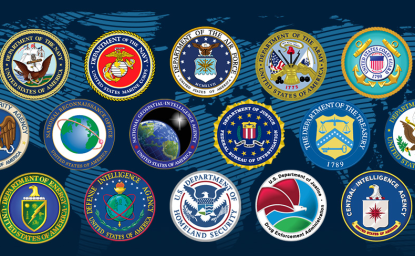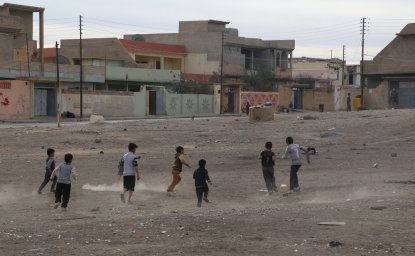ISIS presents complicated short and long-term challenges for U.S. policymakers, with no real end in sight. “The complex crises that have fueled the Islamic State’s rise and facilitated its spread show little sign of abating,” according to a new report by Christopher Blanchard and Carla Humud at the Congressional Research Service. The report provides an assessment of ISIS's current strength and a review of U.S. objectives, strategy, and policy options. The following are excerpts from the report.
The Islamic State (IS, aka the Islamic State of Iraq and the Levant, ISIL/ISIS, or the Arabic acronym Da’esh) is a transnational Sunni Islamist insurgent and terrorist group that controls large areas of Iraq and Syria, has affiliates in several other countries, has attracted a network of global supporters, and disrupts international security with its campaigns of violence and terrorism. The U.S.-led coalition military campaign against the Islamic State organization in Iraq and Syria has adapted since 2014, as Administration officials and coalition partners have implemented changes in strategy and tactics that have reduced the area controlled by the group and eliminated thousands of its personnel. While the Islamic State has suffered losses on the ground in Iraq, Syria, and Libya, a series of terrorist attacks attributed to the group or to individuals it has inspired have claimed hundreds of lives on four continents since November 2015, including in the United States. These incidents are creating a more global sense of urgency about further weakening the group and preventing future attacks.
Members of Congress, Administration officials, and their international counterparts continue to debate a range of proposals for extending battlefield gains made to date and preventing the Islamic State from succeeding in its stated objectives of “remaining and expanding.” President Obama has stated that the goals of U.S. strategy are to “degrade and ultimately defeat” the Islamic State using various means including U.S. direct military action and support for local partner forces. The U.S. military has conducted operations against the group in Iraq, Syria, and Libya. Parallel U.S. diplomatic efforts are designed to promote political reconciliation in each country among local factions. In other countries, such as Egypt and Nigeria, the United States provides security assistance to partner governments in support of those governments’ operations against Islamic State affiliates. Evolving counterterrorism cooperation and intelligence sharing efforts among a wider network of concerned governments seek to further limit the ability of IS supporters to carry out transnational terrorist attacks.
The interdependent nature of conflicts and political crises in Iraq, Syria, and other countries where the Islamic State operates complicates efforts to address and durably eliminate the threats posed by the group. Military operations may eliminate IS fighters and liberate IS-held territory, but underlying political disputes and development challenges that have been exploited by the Islamic State and other extremist groups may remain unaddressed or become amplified if postconflict reconciliation and reconstruction needs go unmet. Governments may share fears about IS-related transnational terrorist threats, but leaders may face difficult decisions about the potential risks and rewards of various proposed military, law enforcement, surveillance, intelligence sharing, financial, border security, refugee admission, and consular measures.
Click here to read the full report

The Islamists
Learn more about Hamas and how it relates to similarly aligned organizations throughout the region. Read more

Explore More
Browse Insights & Analysis
An Act of Terror Cannot Occur on Russian Soil

US Intel: ISIS, al Qaeda, Hamas, & Hezbollah

